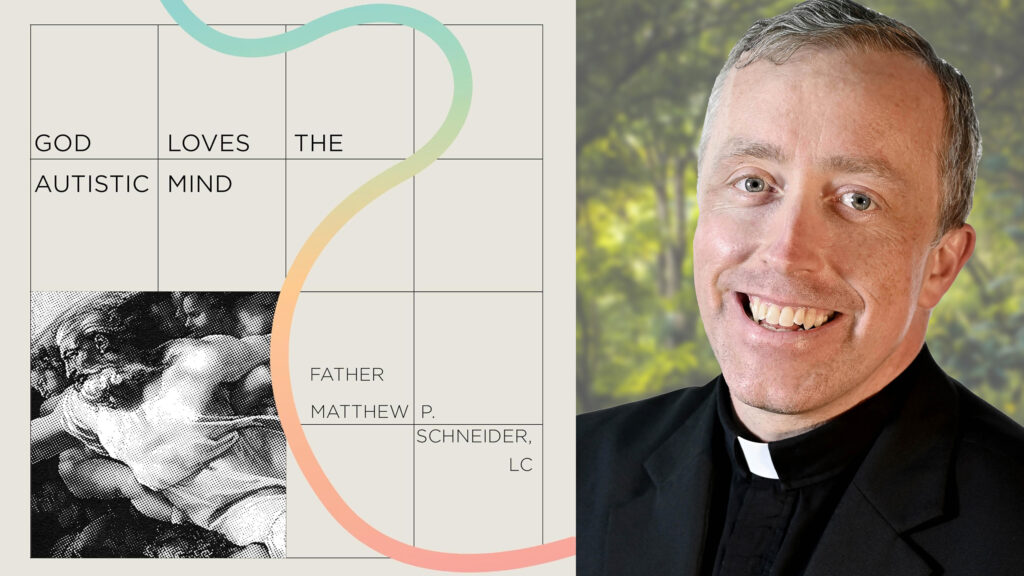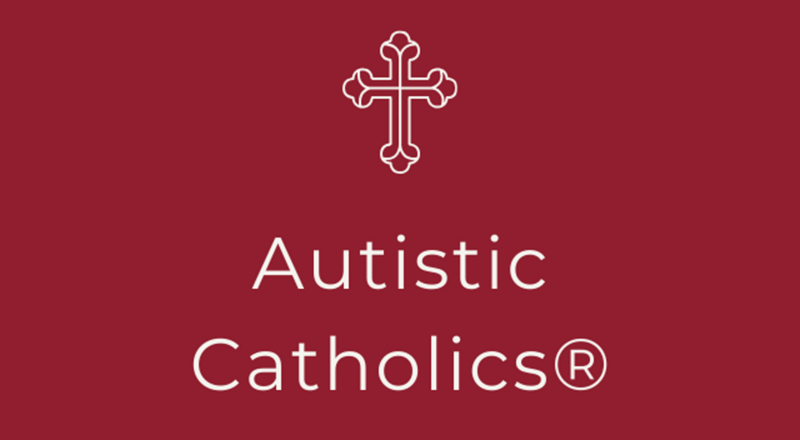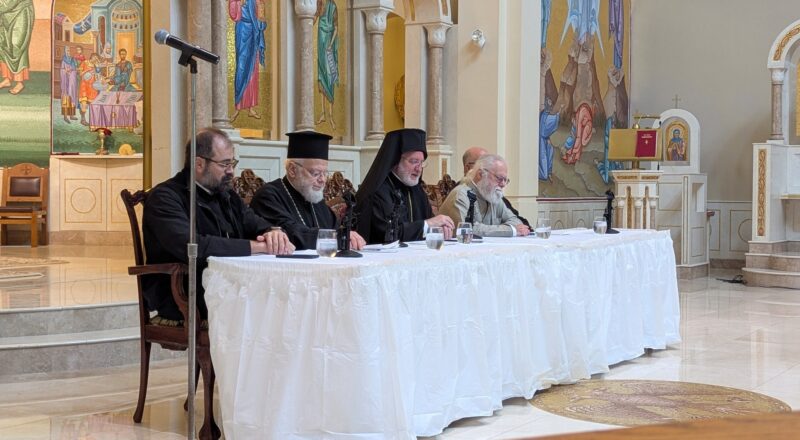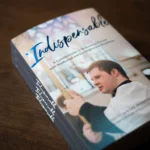Ever since I published God Loves the Autistic Mind: Prayer Guide for Those on the Spectrum and Those Who Love Us, people have asked me for an audiobook. I am happy to announce that this just this month, it was published. The audiobook even has some bonus material not in the print book. Let’s explore the audiobook, then the bonus material.
The Audiobook

I know the advantage of audiobooks: I personally listen to them or podcasts when driving, riding my bike, etc.
I know language and the written word can be difficult for some autistics. (Likewise, audio can be difficult for other autistics.) I really hope this helps the book reach out to a wider audience. I know that it can help so many.
I thought about autistics who struggle with language when looking at different narrators for my book. I also wanted one who sounded kind of like me. Pauline send out for several to do samples, and let me pick from 3 samples. In the end, we went with Justin Straight, who I hope you all like. He has done a few prior Catholic books like Fairest Flower of Paradise: Meditations to Unlock the Litany of Loreto, and God’s Influencer: Holy Advice from St. Carlo Acutis.
You can buy the audiobook of God Loves the Autistic Mind on at least Audible (or Amazon), Google Play, Kobo, Spotify, Apple, Audiobooks.com, Booktopia (Australia), and Everand.
The appendices and footnotes are available as a companion PDF to the audiobook here.
Bonus Material
There were two areas that I thought of bonus material from the 3 years since God Loves the Autistic Mind was published. I will mention each then offer the first few paragraphs as a sample.
I recorded this bonus material myself rather than Justin.
Byzantine Spirituality

In the time since I wrote this book, I have moved much more in the direction of Byzantine Spirituality. I wanted to mention that for the help of autistics.
I wrote this book mainly in 2020 and it was published in 2022. Writing now in 2025, the biggest change in my own life is the movement of my own spiritual life more into Byzantine (Eastern Catholic / Eastern Orthodox) spiritual practices. I want to describe a few and mention why they might be particularly helpful for autistics: prayer rope, icons and poustinia.
Chotki / Komboskini
In Byzantine spirituality, one of the constant prayers throughout the day is the repetition of the Jesus Prayer. We repeat, “Lord Jesus Christ, Son of the living God, have mercy on me, a sinner,” hundreds or thousands of times a day. It is common to do this on a prayer rope which is commonly called a Chotki (Slavic) or Komboskini (Greek). Such a rope would most commonly have 100 knots, but versions exist with other numbers like 33 or 50.
The Jesus Prayer can be said slow or fast. I personally tend to say it faster, so I finish 100 in a few minutes while Mother Natalia mentioned on the What God Is Not podcast that 100 takes her about 15 minutes. There is no right or wrong speed.
The goal of this repetition is not for its own sake, but to facilitate union with Jesus. It is in many ways a kind of base line for deeper prayer where it provides a rhythm and base where we can then have our mind focus on some scene in the Bible, some aspect of Christ, some virtue we need, some saying of a saint, etc.
The Catechism [2666]mentions this idea of repeating Jesus’ name:
The one name that contains everything is the one that the Son of God received in his incarnation: JESUS. The divine name may not be spoken by human lips, but by assuming our humanity the Word of God hands it over to us and we can invoke it: “Jesus,” “YHWH saves.” The name “Jesus” contains all: God and man and the whole economy of creation and salvation. To pray “Jesus” is to invoke him and to call him within us. His name is the only one that contains the presence it signifies.
His name is salvific. In a way, the whole message of salvation is in this one word. It is such a grace to say his name. The Jesus Prayer expands on this and makes it personal: “have mercy on me,” and a note of our humility in self-identifying as “a sinner.”
…
If you want the rest, buy the audiobook.
6-Steps of Meditation
In the original print version, I noted 6 steps you can take for prayer. However, I never offered an example of how to do this. So I did this for two meditations following these 6 steps.
One of the points a few people have noted with my original book is that I offer a six-step way to do mental prayer, but I did not give a good example. Even in the 52 meditations, I more gave points than addressed these steps. To remedy this, I will now use that method to pray on two of my favorite Bible passages.
If you don’t remember the six steps, they are
- Concentrate
- Capture
- Consider
- Converse
- Commit
- Contemplate
Mental Prayer of Jesus as the Good Shepherd
This will follow this strategy to pray on John 10:1-15, commonly titled something like “Jesus the Good Shepherd.” This title may include more but verse 15 seems like a good place to conclude.
Concentrate: Lord, I come before you troubled by all the challenges in my life. I want to be here with you. Grant me the faith, hope and love to really be in your presence fully. Lord, grant me the faith that can move mountains, the faith that knows your presence in my prayer. Grant me hope that is unshaken, that knows I will be with you despite the difficulties I am in. And, Lord, grant me to love you fully with even a shadow of the love you have for me.
Capture: I open my Bible and read. A few verses stand out. Near the beginning St. John writes, “He who does not enter the sheepfold by the door but climbs in by another way, that man is a thief and a robber; but he who enters by the door is the shepherd of the sheep.” (John 10:1-2) Later on we see, “I am the door; if any one enters by me, he will be saved, and will go in and out and find pasture. The thief comes only to steal and kill and destroy; I came that they may have life, and have it abundantly. I am the good shepherd. The good shepherd lays down his life for the sheep.” (John 10:9-11)
…
If you want the rest, buy the audiobook.
Conclusion
I hope this helps even more autistics come to know and love Jesus.
I invite you to buy the audiobook of God Loves the Autistic Mind on Audible (or Amazon), Google Play, Kobo, Spotify, Apple, Audiobooks.com, Booktopia (Australia), or Everand.









